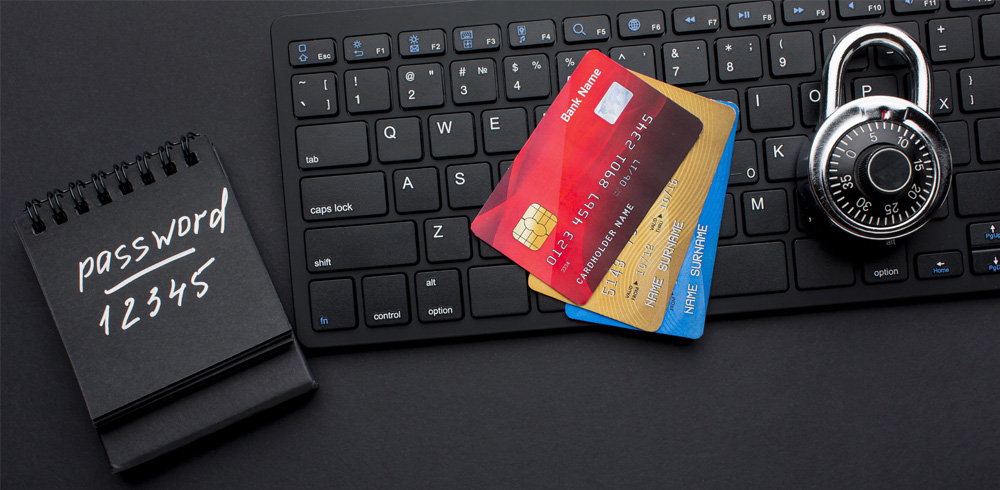Have you ever come across offers for quick online loans promising to solve all your financial worries? While these can be tempting, these flashy messages are often part of identity theft frauds and online loan scams. In this blog, we will shed light on the role of identity theft in online loan scams and how you can recognise the signs of such scams.
What is a Loan Fraud?
Imagine a scenario where you are in need of some extra cash, and suddenly, you receive an email or a message offering you a low-interest personal loan with minimal paperwork. Sounds like a dream, right? Well, sometimes, it is more like a nightmare in the form of loan fraud.
A loan fraud is a scam where scammers try to trick you into giving away your personal information, banking details, and sometimes even your hard-earned money, all in the name of a loan.
These scammers can create fake websites that may look very legitimate, tempting you to enter your sensitive details. Or they might ask for an upfront fee promising to secure your loan, only to disappear once they have your money. These online loan frauds can leave you in a financial mess.
What is Identity Theft in Loan Fraud?
Identity theft involves the unauthorised acquisition and use of your personal information, such as your name and financial account details, for fraudulent purposes. When identity theft is combined with loan fraud, the consequences can be devastating. Fraudsters essentially assume your identity to apply for online loans or Pre-Approved CASHe Limits.
This way, the fraudsters not only secure the online loan but also set the stage for you to bear the burden of repayment. As your identity is used to secure the loan, you are left with the nightmare of dealing with financial obligations that you never incurred.
Also Read – 6 Common Personal loan Scams and how to avoid them
How to Know if You Are Dealing with Identity Theft Loan Fraud?
Identifying the warning signs of identity theft in online loan fraud is crucial. Here are some red flags to watch out for:
- Unsolicited Loan Approvals: If you receive loan approval notifications from unfamiliar lenders without having applied for any loans, it is a sign that someone might be using your identity for fraudulent loan applications.
- Inaccurate Financial Statements: Regularly review your financial statements for any unfamiliar transactions or loans. If you spot loans or Pre-Approved CASHe Limits that you have not taken out, it could be a sign of identity theft.
- Drastic Drop in Credit Score: A sudden and unexplained drop in your credit score might indicate that loans have been taken out in your name without your knowledge.
- Communication from Collection Agencies: If you start receiving calls or notices from collection agencies about loans you never took, it’s a strong indication of fraudulent activity.
- Unfamiliar Accounts: Keep an eye on your credit report. If you notice unfamiliar accounts or inquiries, it is time to investigate further.
- Requests for Personal Information: Be cautious of unsolicited requests for personal information. Legitimate lenders do not ask for sensitive details through email or phone calls.
- Spelling and Grammar Errors: Scam emails or messages often contain noticeable spelling and grammar mistakes. Be sceptical of such communication, especially if it is from a financial institution.
What Should You Do If You Get Trapped in an Identity Theft Loan Scam?
Here is your action plan if you fall prey to an identity theft scam:
Contact Your Bank:
Immediately inform your bank about the situation. They can freeze your account and help prevent further damage.
Report to Authorities:
Report the scam to the necessary authorities and file a complaint with the police.
Change Your Passwords:
If the scam involves your online accounts, change your passwords immediately. And use strong, unique passwords for each account.
Stay Informed:
Keep learning about the latest scams and fraud prevention techniques. Knowledge is your best armour against these online finance scammers.
Also Read – 10 TIps to Protect Yourself from Fraud When You Apply for an Instant Loan
Conclusion
Online loan scams and identity theft in financial frauds are big concerns in today’s digital world. While the integration of technology into our financial transactions has brought convenience, it has also exposed us to various vulnerabilities. Understanding identity theft and online loan fraud is the first step in safeguarding your financial well-being.
By staying vigilant and being aware of the warning signs, you can significantly reduce the risk of falling victim to such scams. Remember, if something seems too good to be true, or if you encounter unexpected loan approvals or unfamiliar transactions, it is essential to investigate further before proceeding. Stay informed, stay cautious, and keep your financial identity secure to stay safe from online loan scams and finance frauds.
Moreover, it is always advisable to avail personal loans from legitimate and recognised lenders like CASHe to ensure that you do not fall prey to online loan frauds.
FAQs
1. What is identity theft?
Identity theft refers to the stealing of your personal information like your name or financial details, and using it without your permission. The stolen information may also be used to commit fraud or other crimes.
2. How does identity theft relate to loan fraud?
In loan fraud, thieves, disguised as you, use your stolen identity to apply for loans or credit cards. This means they get the money or credit, but you are left with the debt and a damaged credit score.
3. What are common methods used by identity thieves to obtain personal information?
The major methods used by identity thieves to steal your information include fake emails, fake websites, social engineering tricks like phishing and tailgating, malware, or hacking into your accounts.
4. What are the signs that your identity may have been stolen?
If your identity is stolen, then you may have loan or credit card approvals you didn’t apply for, strange charges on your bank statements, a drop in your credit score, collection notices for debts you didn’t make, etc.
5. How can identity theft impact your credit score?
Identity theft can impact your credit score if thieves open new accounts or take out loans in your name and do not pay them back. This would damage your credit history and lower your credit score.








